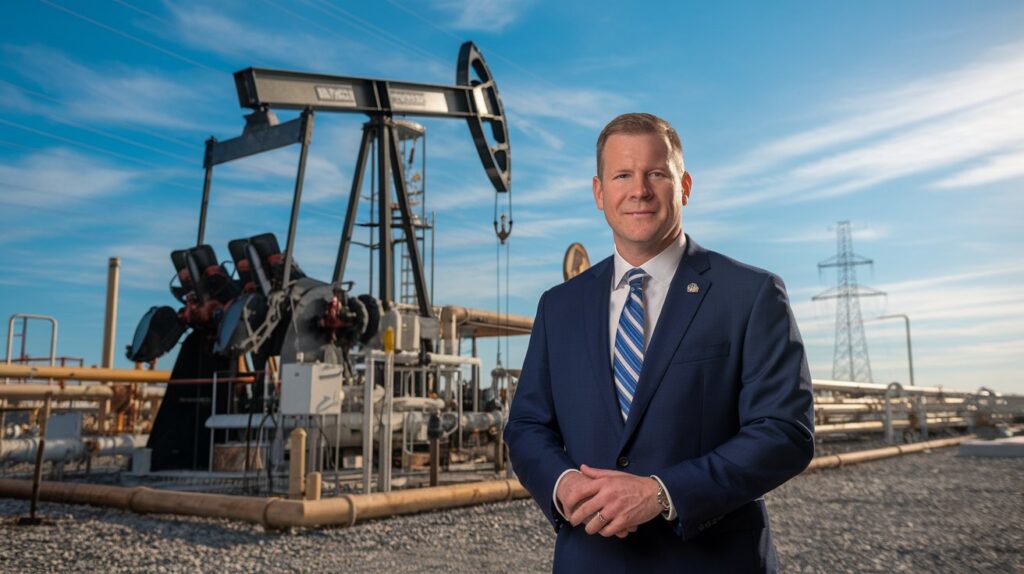Chris Wright Appointed Energy Secretary to Advance US Energy Dominance
In a move that solidifies the U.S. government’s commitment to energy independence, Chris Wright has been confirmed as the new Secretary of Energy. As a pivotal figure in the fossil fuel industry, Wright’s appointment signals a shift towards traditional energy sources, emphasizing the Trump Administration’s goal of ensuring the United States achieves dominance in the global energy landscape.

The Background of Chris Wright
Chris Wright brings a wealth of experience to the role of Energy Secretary. He is known for his leadership in the oil and gas sector, serving as the CEO of Liberty Energy (formerly known as Liberty Oilfield Services), which specializes in hydraulic fracturing for oil and gas. His extensive background provides him with a unique perspective on the challenges and opportunities facing the U.S. energy sector.

A Vision for US Energy Dominance
Wright’s primary mission will be to support Trump’s ambitious agenda for U.S. energy dominance. This strategy focuses on increasing domestic energy production and reducing reliance on foreign energy sources. The implications of Wright’s policies could have several benefits:
- Increased job creation: Expanding the fossil fuel industry can lead to thousands of new jobs nationwide.
- Lower energy prices: A more robust domestic energy supply could drive down costs for consumers and businesses.
- Energy independence: Reducing foreign energy imports enhances national security and economic stability.
Environmental Considerations
While Wright’s appointment is welcomed by many within the fossil fuel industry, it has sparked concerns among environmental advocates. Critics argue that a renewed focus on fossil fuels could hinder progress toward cleaner alternatives. Wright must navigate these complex challenges while pushing for the administration’s goals.
Strategies for Achieving Energy Independence
As Energy Secretary, Wright is expected to implement several strategies to enhance energy production and support the fossil fuel sector:

- Streamlining regulations: Reducing bureaucratic red tape can expedite energy production and infrastructure projects.
- Supporting technological innovation: Investing in new technologies can make fossil fuel extraction and consumption cleaner and more efficient.
- Investing in energy infrastructure: Expanding pipelines and refining capabilities will necessary to support increased domestic production.
Impact on Renewable Energy
Wright’s leadership could also influence the growth of renewable energy sources. As fossil fuels remain a focal point, renewable energy initiatives may face funding and policy challenges. However, Wright may also find ways to integrate renewables into a diversified energy portfolio, emphasizing a balanced approach.
Public and Political Reactions
The response to Wright’s appointment has been mixed. Supporters in the energy sector praise his wealth of experience and his commitment to traditional energy. Meanwhile, environmentalists and some political opponents express concern over potential setbacks for clean energy initiatives.
- Supporters: Industry leaders and labor unions have lauded Wright’s deep understanding of the energy landscape and his capacity to create jobs.
- Opponents: Environmental groups criticize his ties to fossil fuel interests and fear that his policies could exacerbate climate change.
The Future of US Energy Policy
Wright’s tenure as Energy Secretary will be closely watched as he works to implement the Administration’s energy policies. His decisions could shape the U.S. energy landscape for years to come, influencing everything from domestic production rates to international energy relations.
Challenges Ahead
One of the significant challenges Wright will face is balancing the needs for economic growth and environmental sustainability. As fossil fuels remain at the forefront of energy production, the demand for clean energy solutions continues to rise. Wright must find a way to address these dual priorities:
- Mitigating climate change: Ensuring that traditional energy sources do not contribute excessively to environmental damage.
- Meeting consumer demand: Providing affordable energy solutions while acknowledging growing demands for renewables.
Conclusion
Chris Wright’s appointment as Energy Secretary marks a significant moment in U.S. energy policy. His background in the fossil fuel industry positions him uniquely to spearhead initiatives aimed at achieving energy dominance. As he embarks on this critical role, the nation will be watching closely to see how his leadership shapes the future of energy production, economic growth, and environmental protection. [USnewsSphere.com]





